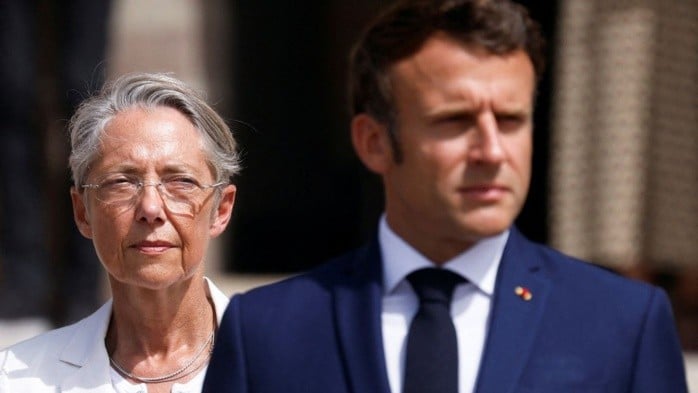
In a strategic political maneuver, French Prime Minister Elisabeth Borne tendered her resignation on Monday, setting the stage for President Emmanuel Macron to inject new momentum into his government amid recent political challenges. This move comes as Macron, constrained by constitutional term limits, seeks to rejuvenate his leadership before his tenure ends in 2027.
Borne’s resignation, interpreted as being at Macron’s behest, follows the contentious passage of a new immigration law, a legislative victory that nonetheless exposed the fragile nature of the government’s ability to enact major policies. The law, aimed at strengthening deportation measures among other provisions, only passed with support from the conservative Republicans party, signaling a potential rightward shift for Macron’s centrist alliance.
This political recalibration comes at a time when Macron’s administration, particularly under Borne’s tenure, has navigated a series of tumultuous events. The government faced significant backlash, marked by protests and riots, over reforms including a controversial pension overhaul that raised the retirement age, and a response to civil unrest triggered by a police-involved shooting.
Borne, who served as France’s second female prime minister since her appointment in May 2022, helmed the government through a period marked by legislative challenges and public dissent. The Macron administration lost its parliamentary majority last year, leading to a reliance on constitutional powers to pass legislation, a tactic that drew criticism and heightened political tension.
As Macron prepares to appoint a new government, there is speculation that this reshuffle is aimed at preparing for the upcoming European Union elections, a critical event for the president who is known for his pro-European stance. The change in leadership is seen as an attempt to regain political footing and navigate the complexities of domestic and European politics.
In accepting Borne’s resignation, Macron lauded her service, highlighting her commitment and courage. However, her tenure will likely be remembered for the government’s contentious policies and the public’s response to them.
Under the French political system, the prime minister, while appointed by the president, must navigate the intricacies of domestic policy and lead the ministerial team, a role that has proven especially challenging in the current political climate. The president, wielding significant authority over foreign policy and defense, must now select a successor who can effectively manage the domestic arena while supporting his vision on the European stage.
As France anticipates the announcement of a new prime minister, the focus will be on how Macron’s choice will influence the country’s direction both domestically and in its European engagements, particularly in light of the complex challenges that lie ahead.



 and then
and then